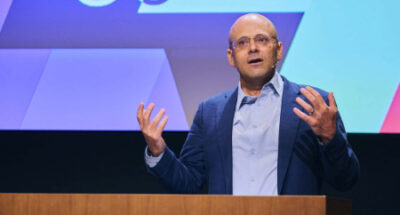Much has been said and written about how much the world of work has changed over the past few years. For employers, it can seem like there is a new risk, a new trend or a new challenge emerging every week. This against the constant backdrop of the “Great Attrition” and a high-stakes scramble for top talent.
The Adecco Group’s Global Workforce of the Future Report 2022 compiles data from over 34,000 respondents across 25 countries in the hope of giving shape to the apparent chaos. Among its central themes sits the rise of the ‘quitfluencer’, talent retention and the importance of skills.
While launching the report in a live webinar, I was joined by guests Christine Graeff, Global Head of People at Credit Suisse, Krish Shankar, EVP Group Head of HR Development for Infosys, and Neena Potenza, Global Strategic Initiative Manager at the Ingka Group.
The question is simple: how do we future-proof our workforce and prevent an epidemic of quitting? The answer is less so.
Skills at the core of career
Christine Graeff explained in the webinar that the way younger workers see their careers is radically different from the traditional itinerary of step-by-step progression up the ladder – it is an individual journey of growth. “The development of their own career is what Gen Z is more focused on,” she explained. “They will change jobs often, but they will stay if they feel their career is being looked after.”
Career progression and personal development can often play second fiddle to salary in retention strategies, but The Adecco Group’s report strongly suggests this is a faux pas. While 64% of managers believe their company has invested in their development, only 36% of non-managers feel the same. In other words, around two-thirds of non-managers feel like they lack prospects.
Make no mistake, workers are not blind to the megatrends that worry employers. For example, no less than 66% of non-desk workers say that they will need to learn new skills to keep pace with digitization. A further 77% of non-desk workers feel they have significant skill gaps. And 65% of workers believe a better working future is their responsibility. In the context of the “Great Attrition”, this should be taken seriously. If the current employer doesn’t provide training, the majority of workers will find one who will.

What’s worse is, in most cases, the employer is unaware of this – 23% of the workforce have never had a career progression conversation with their manager. Without these career conversations, there is little chance of workers receiving the training they need, or of internal mobility. That often means more external hires, a dry talent pipeline, and quite possibly the start of a quitting contagion.
At Infosys, Krish’s team has put in place a three-pronged approach: first, they are perpetually looking at which skills need to be fostered to progress with digital technology; then, they put in place learning journeys for workers which includes a six-month hands-on placement. Third, they created a Digital Quotient (DQ) to quantify skills and their applications to the job. This allows workers to self-assess and incentivizes them to learn.
“The half-life of skills is pretty short,” explained Krish. “With lots more new technologies being brought in, we need an engine to bring new skills up constantly.”
Enter the ‘quitfluencer’
27% of workers globally want to leave their job in the next 12 months. That’s a striking statistic, but here’s another one: 7 in 10 workers admit that seeing a colleague resign makes them consider quitting too. Half of those who have witnessed a resignation have actually taken action. That’s for both desk and non-desk workers. Enter the ‘quitfluencer’.
Here’s how I explain it: there’s one person who’s starting to think about leaving…and when they quit, all of a sudden, you have tens of employees following suit. This is certainly a reminder for us in companies of what we need to do to contain the influence of the quitfluencer.
So, in a competitive job market where 61% of workers feel confident they could find a new role in six months, a single resignation could trigger a landslide. How can employers prevent that from happening?
The report shows that salary plays a major role in pushing candidates towards new opportunities – but that changes when workers feel engaged. In that scenario, salary is much less significant. What makes workers want to stay in their job is satisfaction, career development, stability, work/life balance, company culture and flexibility.
The common denominator
Back to the question at hand: how do we future-proof workers and prevent quitting contagions? Conversation is crucial.





 Audio available
Audio available
